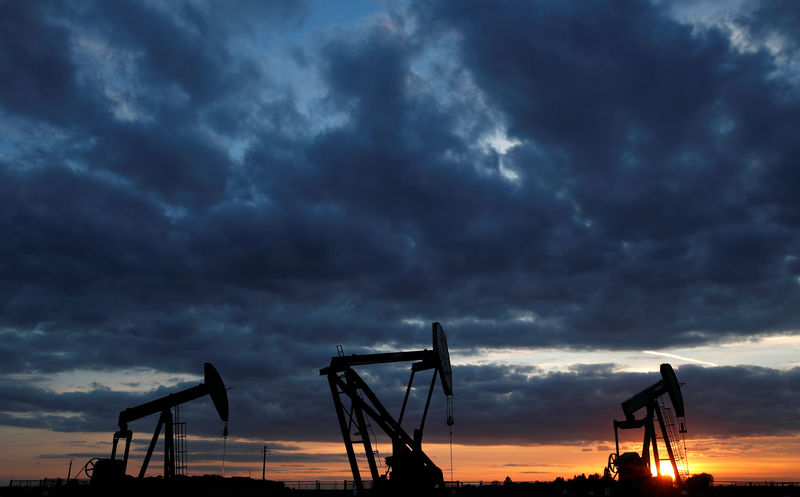By Peter Nurse
Investing.com - Oil prices were lower early Tuesday in New York, amid worries about global growth following news of an outbreak of a new pneumonia-like virus in China.
By 7:15 AM ET (14:15 GMT), U.S. crude futures traded at $58.20 a barrel, down 0.7%, while Brent was 1% lower at $64.56.
The outbreak of the disease is still in its early stages. But it brings back memories of the 2002 SARS epidemic, which caused around 800 deaths and resulted in an estimated 1% hit to China’s gross domestic product and 0.5% reduction in Southeast Asia
The situation is unclear, noted Peter Garnry, Head of Equity Strategy at Saxo Bank, in a research note, but “history tells us that there are many unknowns and that the initial reaction often fails to discount the true extent.”
Worries about the impact of this disease on future Chinese growth come after the International Monetary Fund Monday increased its estimate for the country’s GDP annual growth to 6% from the 5.8% it saw in October after the signing of the Sino-U.S. trade deal. That said, the IMF expects China’s growth rate to ease further to 5.8% in 2021, a downward revision from the 5.9% previously expected.
And that’s assuming the conditions behind the trade agreement are met.
However, “China’s commitment to buy an additional $52.4 billion in U.S. energy over the next two years is unachievable”, according to Clyde Russell, a columnist for Reuters, “even with the best will in the world.”
In practical terms this means China’s imports from the United States this year would have to be more than double past record monthly imports of U.S.-sourced crude oil, liquefied natural gas and coal, added Russell.
“If that already seems difficult, it would take a tripling of the best-ever months to meet the 2021 target.”
Elsewhere, growth fears overshadowed a worsening supply squeeze from Libya. Analysts at Rystad Energy said output from the OPEC member is set to fall below 100,000 barrels a day -- less than 10% of the country’s pumping capacity and the lowest since its civil war erupted in 2011.
However, International Energy Agency chief Fatih Birol told Bloomberg that Libya is unlikely to affect global market balance because the world is still "awash with oil". He said he was more concerned about the loss of political stability in Iraq, which produces four times as much oil as Iraq.
"I see Iraq as a major issue for the world oil markets," Birol said.
